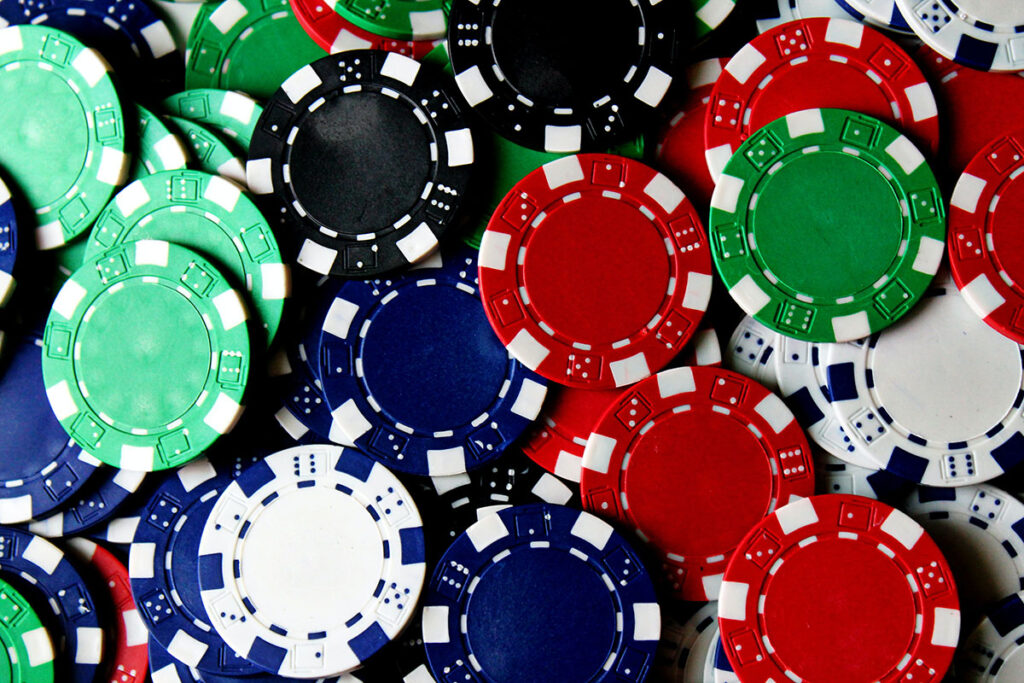Social gamblers enjoy placing a bet, visiting a casino or playing cards as an occasional form of entertainment. They have full control over the time, money and effort they spend on gambling. However, for some people gambling can spiral out of control and take over their lives.
This blog examines what causes someone to become a compulsive gambler. It is for anyone who is worried about their gambling habits, and the family and friends of someone whose gambling has become a problem.
What is compulsive gambling?
Compulsive gambling (also known as problem gambling, pathological gambling, gambling addiction and gambling disorder) has far-reaching consequences. According to the Royal Society for Psychiatrists, it is defined as “gambling that disrupts or damages personal, family or recreational pursuits.”
Gambling disorder has been officially recognized as a mental health disorder in the Diagnostic and Statistical Manual of Mental Disorders (DSM-5) published by the American Psychiatric Association. It is the only non-substance addiction included in the ‘Addictions and Related Disorders’ category. The previous version (DSM-4) classified the condition as an impulse-control disorder rather than an addictive disorder.
Compulsive gambling is a behavioral addiction that can cause significant financial and emotional problems for the sufferer and their loved ones. At Kindbridge, we are experts in helping gamblers and family members to regain wellness and control in their lives. We can help you to understand the underlying causes of the compulsive gambling and give you the tools to get better faster.
What causes compulsive gambling?
The exact cause of compulsive gambling is difficult to pinpoint. However, certain biological psychological and socio-cultural factors can increase the risk of someone becoming a compulsive gambler:
Mental health disorders
People who suffer from the following mental health conditions can be more susceptible to compulsive gambling:
- Anxiety
- Depression
- Personality disorder
- Bipolar disorder
- Obsessive compulsive disorder (OCD)
- Attention deficit hyperactivity disorder (ADHD)
- Substance abuse problems.
Family and friends
Studies have shown that children of compulsive gamblers are far more likely to develop gambling problems later on in life. Social influences and peer pressure from friends and colleagues can also increase a person’s exposure to and risk of compulsive gambling.
Age
People can become compulsive gamblers at any age but research shows that the mean age is around 36. Gambling during a person’s formative years increases the risk of developing compulsive gambling.
Gender
Compulsive gambling is more prevalent in men than women: 4.2% of men compared to 2.9% of women. Females typically start gambling later in life and may become addicted more quickly.
Parkinson’s disease and restless leg syndrome medication
Certain medications that are used to treat Parkinson’s disease and restless leg syndrome have been linked to a higher risk of compulsive gambling.
Personality traits
There are several personality traits that can make someone more disposed to becoming a compulsive gambler. These include being:
- Impulsive
- Highly competitive
- A workaholic
- Restless or easily bored
- Narcissistic.
Military status
Research shows that US military veterans are more vulnerable to compulsive gambling than the general population.
Take the gambling disorder test
Are you concerned about your gambling, or the behavior of a friend or family whose gambling seems to be out of control? Take our quick and easy Gambling Disorder Test to find out whether you – or they – are showing signs of compulsive gambling. If you still have concerns after taking the test, you don’t have to struggle alone. Get in touch to discuss how we can help you.
Signs and symptoms of compulsive gambling
The American Psychiatric Association has identified nine signs and symptoms of compulsive gambling to look out for in people who are struggling to manage their gambling activities. These include repeated unsuccessful attempts to control, cut back or stop gambling; lying to friends and family to hide gambling activity; and feeling compelled to continue gambling to recover lost money (this is called ‘chasing losses’). The full list of signs and symptoms are listed on the American Psychiatric Association website.
In order for gambling disorder to be diagnosed, a person needs to have displayed at least four of the nine common signs and symptoms of compulsive gambling during the last 12 months. It should be noted that compulsive gambling behavior does fluctuate. Sufferers can go through periods where their symptoms are less severe – and gambling is not having such a detrimental impact on their life and those around them – in between periods of more compulsive and problematic gambling.
How to get help for compulsive gambling
Compulsive gambling can have devastating consequences for everyone involved. You – or a loved one – may find yourself socially isolated, losing interest in work and school, getting into debt or struggling with low motivation for other activities. It might be interfering with family relationships, or you may find yourself irritable and moody, or gambling to escape anxious or difficult feelings. We can help.
We will connect you to a fully-licensed therapist who will design a tailored treatment plan to help you change your harmful habits and address any co-existing mental health problems. This many include cognitive behavioral therapy (CBT) which is highly-effective at changing thoughts and feelings towards gambling, and providing coping mechanisms to reduce the compulsion to gamble.
At Kindbridge, our online counseling for compulsive gambling is highly accessible, affordable and convenient. Receive support in the comfort of your home, or anywhere else with an internet connection.
Take the first step and book your free 30-minute consultation so we can discuss your individual needs and situation.

